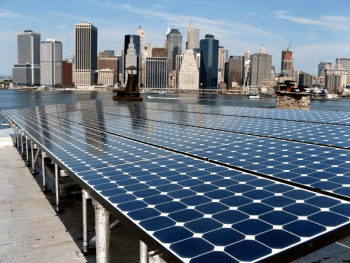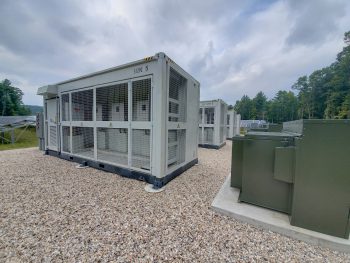Governor Baker Brings Tax Certainty to Massachusetts Solar Customers, Sets Net Zero Emissions Target
Landmark climate corrects tax loophole for solar customers, but climate goal can’t be reached without additional policy action
BOSTON and WASHINGTON, D.C.— Today Governor Baker signed “An Act Creating A Roadmap for the Next Generation of Climate Policy” into law, ending a months-long standoff with the legislature on this bill.
Under the bill, homeowners and small businesses that install solar won’t see property tax increases and larger solar systems that already have an agreement in place for tax payments will be exempt from additional taxes. In addition, the Commonwealth’s main solar incentive program, known as the Solar Massachusetts Renewable Target, will now serve more low- to moderate-income families.
Following is a statement from David Gahl, senior director of state policy for the East at the Solar Energy Industries Association (SEIA) on the development:
“We commend Governor Baker for signing this historic climate bill into law. The law contains numerous provisions that will ultimately expand solar accessibility and protect solar customers.
“For years, solar developers in Massachusetts have been in limbo when it comes to determining their taxes. SEIA negotiated a fix that will prevent the government from overtaxing solar projects, providing much needed certainty in the local solar market.
“Massachusetts was one of the top solar states in the country, but unsupportive solar policy has caused the state to plummet in national solar rankings from 5th place in 2017 to 15th in 2020. These commonsense changes are a start, but more must be done to help the Commonwealth achieve net-zero emissions by 2050 and install the 4-7 gigawatts of clean energy needed to reach that objective.
“This legislation gives us a path forward, but it’s now on us to make the market conditions needed to scale clean energy deployment and meet this goal. If we are thoughtful about the policies we create, like establishing specific targets for solar deployment, requiring solar on new construction, and creating solar rates that encourage deployment, we could regain our footing as a top solar state and create thousands of well-paying solar jobs.
“We look forward working with the Baker Administration and the Legislature on additional ways we can use solar to meet our goals and boost the economy.”
###
About SEIA®:
The Solar Energy Industries Association® (SEIA) is leading the transformation to a clean energy economy, creating the framework for solar to achieve 20% of U.S. electricity generation by 2030. SEIA works with its 1,000 member companies and other strategic partners to fight for policies that create jobs in every community and shape fair market rules that promote competition and the growth of reliable, low-cost solar power. Founded in 1974, SEIA is a national trade association building a comprehensive vision for the Solar+ Decade through research, education and advocacy. Visit SEIA online at www.seia.org and follow @SEIA on Twitter, LinkedIn and Instagram.
Media Contact:
Morgan Lyons, SEIA’s Senior Communications Manager, mlyons@seia.org (202) 556-2872



